Tilt the head to one side, and let oil flow into the ear from the spoon. A dropper or pipette can be used if the spoon is too tricky. Leave the oil in the ear for a few minutes before tilting head to drain oil onto a paper towel.
Itchy Inner Ear Causes, Home Remedies, and Prevention Tips
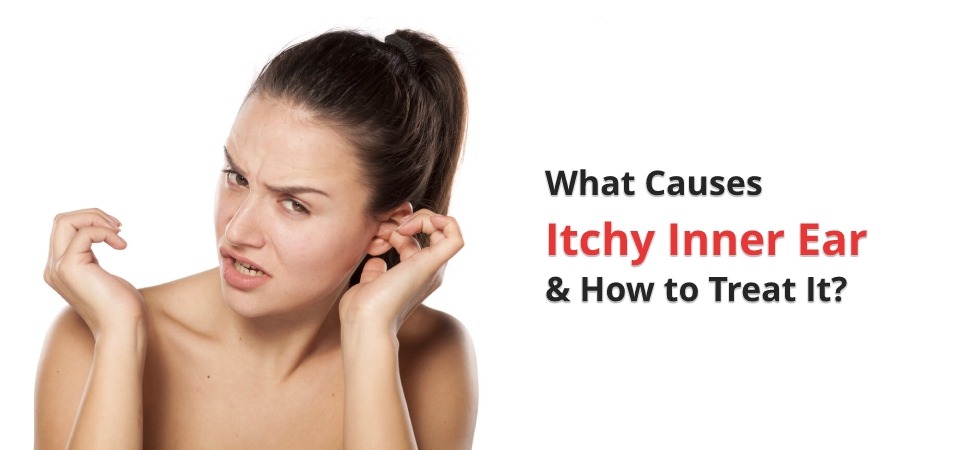
An itchy inner ear is the result of a dry, flaky, or inflamed skin of the inner ear.
The main causes of an itchy inner ear are water lodging, damage to skin, or a fungal or bacterial infection. The itchy inner ear and throat is common and doesn’t interfere with your hearing capability.
It becomes a threat to hearing if hard objects are used to itch the ear. Itching the ear irritates and damages the skin further. This article addresses a universal search “my ears itch deep inside” as well as home remedies and prevention measures.
Causes of Itchy Inner Ear
Here are some common causes of itchy inner ears.
1. Ear Wax
The purpose of ear wax is to avoid itchiness and discomfort. If the ears are not producing enough wax, the area is prone to dry, irritated skin. Dry skin causes itchy inner ears. Itching the inner ears intensifies the itchiness.
2. Allergies
An itchy inner ear is a symptom of an allergy. It may be due to a runny nose and postnasal drip. The histamine triggers the running nose. Itching from allergies can be from the season, food, dust, etc.
3. Fungal Infections
The primary symptom of fungal infections in the ear is itchiness. Fungal infections in the ear can be from swimming or exposure to moist conditions. You can prevent fungal infection by keeping the inner ear dry.
4. Skin Conditions
If your ears itch deep inside, skin conditions such as eczema and psoriasis may be the cause. These infections can spread into the ear canal. Primary indications of these conditions are itchiness, irritation, and swelling.
5. Q-Tips or Cotton Buds
It is not recommended to use Q-Tips or cotton buds to clean the ears. The ear naturally cleans itself. Cotton buds scratch the sensitive skin in the ears. The damage exposes the inner ear to infections.
6. Swimming
Swimmers are at a higher risk of suffering from itchy inner ears. Water carries bacteria and fungus into the ears.
The risk is higher if the skin in the ears is broken or scratched. Water getting into ears leaves moisture, which is an ideal reproduction area for bacteria.
7. Hair or Bath Products
Products such as hairspray, bubble bath, hair gel, hair dye, and shampoo can cause ear itchiness. The residue gets into the inner ears and causes irritation and sensitivity.
8. Weather Conditions
Fungi thrive in warmer conditions. Warmer weather conditions can irritate the ears. Moisture in the weather can create a breeding ground for fungi and bacteria in the ear, which leads to infection.
9. Trauma to Ear
Individuals who continuously itch the inner ears with items such as cotton buds, toothpicks, and bobby pins might scratch the sensitive skin of the inner ear. The breaking of the inner ear skin leads to more itching and infection.
10. Bugs
There are cases where bugs travel into the inner ear, especially while sleeping. It leads to insects buzzing in ear and itching. The bugs moving around in the ear can irritate the skin. The bugs can be removed by drowning them.
Home Remedies for Itchy Inner Ear
Everyday household products can be used as home remedies for itchy inner ears.
These solutions can be used to remove the cause of the itchiness or irritation, such as ear wax or moisture. Try these itchy inner ear home remedies first before seeking medical attention.
1. Oil Drops
Put warm olive or coconut oil in your ear. A few drops of oil helps prevent excess wax build up and is safer than using a q-tip or object to remove wax. Put oil in a glass of warm water.
Test the solution on the wrist to ensure it is not too hot. Add a few drops of oil to the ear, and let it sit for a few minutes before draining. Avoid scratching the ear after this, for it will cause more irritation and damage.
2. Vinegar and Alcohol
A standard solution is to use equal portions of white vinegar and alcohol. This solution is a home remedy for infections. The acid in vinegar and alcohol helps clean the ear and kill bacteria.
To insert the solution use a pipette, teaspoon, or dipper. Tilt the head, and let the solution flow into the ear.
Leave it in the ear for a few seconds before draining onto a paper towel. It is not recommended to overuse this method because the solution can dry out the ears.
3. Soften Wax
Excess ear wax may be the cause of pain or irritation. Ear wax should not be removed with an object. It is better to soften the earwax. This process can be done with a warm compress (warm towel) or water bottle.
Lie down with compress or water bottle on the ear. Once the wax is softened, it should slide out of the ear. Swipe the wax away if it is visible. Do not insert the swab into the ear.
4. OTC Pain Medications
OTC pain medications such as Tylenol or Ibuprofen can alleviate pain while the ear heals.
5. Keep Ears dry
Reduction of irritation in the ears involves keeping the ears dry.
Using a swim cap helps keep the ears dry during swimming sessions or showers. After showers, a hairdryer can be used to dry ears as long as it’s on the low setting to prevent burning.
How to Prevent Itchy Inner Ear?
Here are some methods which can prevent itchy inner ears.
1. Prevent Excess Liquid from Entering into Your Ear
To prevent liquid from entering ears while showering, put a cotton ball at the entrance of ear.
This method also protects the inner ear from products such as shampoo, soap, etc. Keep in mind to gently place the cotton into ear and not too deep. Remove the cotton if it irritates the skin.
2. Purchase a Swim Cap or Headband
It is wise to use a swim cap or headband to keep water out of the ear. These items also keep fungi and bacteria out of the ear to prevent infection.
If water does get into the ear, tilt the head to drain water. Last resort is to use a hair dryer to evaporate the water. Keep hair dryer on low setting and 50 cm away from the ear.
3. Use Olive Oil
Olive oil is a natural and harmless way to clean the ears and prevent wax build up. Put a small amount of oil on the spoon.
Tilt the head to one side, and let oil flow into the ear from the spoon. A dropper or pipette can be used if the spoon is too tricky. Leave the oil in the ear for a few minutes before tilting head to drain oil onto a paper towel.
4. Ear Wax Removal
Drain ear wax. If the oil method doesn’t work, there are wax removers that can be purchased at a store. The product is a wax softener, and it should be used sparingly.
5. Avoid Ear Plugs
Be gentle with ears. The skin in the inner ear is delicate and sensitive. Avoid putting hard objects in the ear. Use precautions when using ear plugs too.
Earplugs also apply towards the earplugs used for music. Use earplugs after the ear is dry. It is best to avoid earplugs until the infection clears.
Taking these prevention measures will help avoid itchy inner ears in the future. The itchy inner ear remedy will alleviate the itchiness.
Knowing the reasons for the itchy inner ear can help determine which home remedy to use and how to prevent it from recurring.
Read Next:
Sources:
Wordinger, D.,”How to Treat an Itchy Ear Canal,”Healdove web site, March 23, 2017; https://healdove.com/disease-illness/Itchy-Ear-Canal.
“Itchy ear: Causes, Symptoms and Diagnosis,” Healthline web site; https://www.healthline.com/symptom/itchy-ear, last accessed November 11, 2017.
“Itchy Inner Ear,” Med-Health web site, Januar 06, 2014; http://www.med-health.net/itchy-inner-ear.html.
Sharing is caring! Your love and support motivates us!
Irene is a health and fitness consultant based out of Albuquerque, NM. She was a personal trainer during the years of 2010-2013. She holds a Bachelors of Liberal Arts with a focus on creative writing from The Evergreen State College. She obtained her personal trainer license through Seattle Central College in 2010. Irene has been an athlete since childhood. She currently train and compete in ultra-marathon running and jiu jitsu. She started health writing in 2009 as a hobby through her personal blog. She believes that people can seek help from a trainer or trained profession to reach fitness and health goals. Though, people can learn a lot about them and promote self-sufficiency if they had affordable resources. By 2010, Irene started contributing to several health websites while completing her personal trainer certification and training for marathons. She saw how certain health variables affected her training and wanted to share this information with the public. Since then, Irene has written various articles about health and fitness featured on different magazines.
- Next storyInfantigo: Types, Causes, Contagious, Symptoms, and Treatments
- Previous storySore Breasts after Period (Mastodynia): 10 Possible Causes and Treatments
Connect with us

Disclaimer: The information contained on our website should not be considered as an alternative or substitute for a professional medical consultation, advice, diagnosis, treatment. Daily Health Cures contains general medical information which is provided without any representations or warranties, express or implied. All the content found on our website, including, but not limited to: text, graphics, audio, videos – are created for informational purpose only. If you have any specific questions about your health or wellbeing or any medical matter, you should consult your doctor or any other professional healthcare provider. Daily Health Cures and its employees are not responsible, directly or indirectly, for any medically unsupervised activity that may be potentially harmful to your health.
Daily Health Cures © 2023. All Rights Reserved.
7 Reasons Why Your Ears Are Itchy (and What to Do About It)
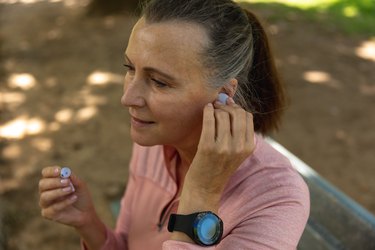
There are few things more maddening than an insistent itch. Especially when said itch occurs in an unreachable place, like the inside of your ear. But why are your ears itchy, exactly?
While most cases of itchy ears aren’t a cause for concern, the scratchy sensation can still be insanely annoying and distracting.
Video of the Day
Here, Philip Chen, MD, FARS, an associate professor of otolaryngology and rhinology at the University of Texas Health Science Center at San Antonio, explains the most common reasons why your ears are so itchy and how to get relief (spoiler: It doesn’t involve sticking a cotton swab inside your ear, which can be harmful).
1. You’re Over-Cleaning Your Ears
While it might sound counterintuitive, keeping your ears too clean can be instigating the itchiness. Yep, your seemingly hygienic habit can be hindering your ear health.
Here’s why: “The skin of the ear canal makes cerumen (earwax),” Dr. Chen says. “This sticky substance is important in helping to protect the ear from trauma, water damage and even bacteria.”
Over-cleaning can remove this protective layer, making it easier for meddling microbes to make their way inside. It may also lead to inflammation, especially if you accidentally break the skin, which invites infection, Dr. Chen says.
All of this can result in irritation, and may be the reason why the insides of your ears are itchy.
Fix it: Earwax usually clears out of your ear canal on its own, according to the Cleveland Clinic. So stop sticking objects in your ears to clean them (we’re looking at you, Q-tips). This can push wax deeper into your ear, causing more harm than good.
Instead, gently pat your outer ears dry with a towel after you bathe.
2. You Have Wax Buildup
Everyone knows the saying “too much of a good thing.” Well, it holds true when it comes to earwax. While wax can protect your ears, too much of it can cause itching, Dr. Chen says.
Other symptoms of excessive earwax buildup include pain or an odor coming from your ear, according to the Cleveland Clinic, and your ear may feel clogged.
Fix it: Fortunately, “there are many things a person can do to avoid wax buildup,” Dr. Chen says.
“A few drops of hydrogen peroxide can break down and loosen excessive wax,” which can then be more easily flushed out by the body, Dr. Chen says.
Over-the-counter wax-softening kits and bulb irrigation kits can also be helpful, he says.
On the other hand, avoid cotton swabs (which can unintentionally push wax deeper into your ear), sharp objects like bobby pins (which can tear the delicate skin inside your ear) or ear candles (which can lead to burns), Dr. Chen says.
Tip
Before you try to remove earwax on your own, always talk to your doctor first, as any home remedy could be contraindicated if you have an infection, wear hearing aids or have a hole in your eardrum, Dr. Chen says.
3. You Have an Underlying Skin Condition
Just like the rest of your body, your ear canal is covered with skin. And that makes it equally susceptible to skin issues like eczema and psoriasis, per the Cleveland Clinic.
Indeed, dermatologic conditions can develop inside your ear and result in itchy rashes. So if you’re wondering why your ears are hot and itchy, this could be the cause.
Fix it: If you suspect skin issues are the source of your itch, see a dermatologist or ENT specialist. There are many medications to treat dermatological problems like dermatitis and psoriasis (like ear drops or oral steroids), but they need to be tailored to the individual, Dr. Chen says.
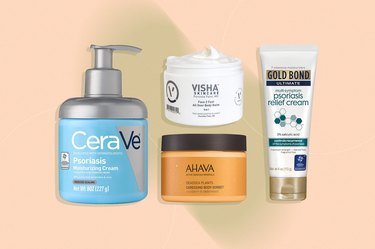
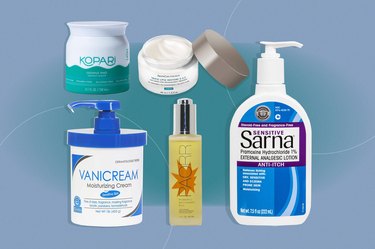
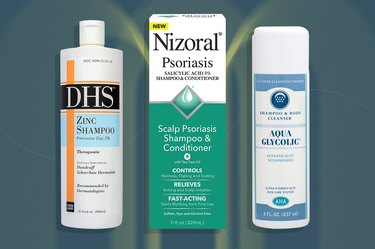
4. You Have an Ear Infection
Itchiness could be a symptom of an external ear infection, also known as otitis externa or swimmer’s ear, Dr. Chen says.
Otis externa occurs when your ear canal — the opening that runs from your eardrum to the outside of your head — becomes infected due to excessive moisture that builds inside your ear and promotes bacterial growth, per the Mayo Clinic.
This tends to happen to people who spend a lot of time in water, hence why the condition is called swimmer’s ear.
You can also develop swimmer’s ear by inserting fingers, cotton swabs or other objects into your ear, which may damage the delicate skin in your ear canal and cause an infection, per the Mayo Clinic.
In addition to itching, swimmer’s ear can cause pain, drainage and hearing changes, Dr. Chen says.
Fix it: “This should be treated by a medical professional who may give topical ear drops and clear the ear canal,” Dr. Chen says.
Don’t attempt to self-clean with home remedies for swimmer’s ear, as you can inadvertently cause trauma to the ear canal, which will only make the situation worse, he says.
Tip
Wearing a tight-fitting swim or shower cap when you swim or bathe can help you prevent swimmer’s ear in the first place by reducing the amount of water that gets into your ears.
5. You Have a Skin Allergy
If your ears are irritated and scratchy, it might mean you’re experiencing a skin-related allergic reaction.
Many things can cause skin sensitivity, including materials in earbuds, soaps, shampoos, makeup and even certain metals in earrings, like nickel, Dr. Chen says.
Indeed, nickel is a common culprit of skin allergies and may trigger itchiness, redness, dry patches or swelling, according to the Cleveland Clinic. These symptoms usually occur where the metal touched your skin.
Fix it: If you’re wondering why your ears are itchy, take stock of whether you’ve used any new products or worn different jewelry recently. Once you determine what’s causing the allergic reaction, avoiding contact with it is the best option to decrease ear itching, Dr. Chen says.
If you’re having trouble identifying the culprit, an allergist or dermatologist can perform patch testing to help you find the source.
While this kind of itchiness is typically temporary (lasting 12 to 48 hours after contact), over-the-counter steroid creams (like hydrocortisone) and oral antihistamines (like Benadryl) may provide relief in the meantime, Dr. Chen says.
Keep in mind that some people may be sensitive to hydrocortisone, too. If using this kind of product makes your symptoms worse, stop using it and turn to oral antihistamines instead.
6. You Have Seasonal Allergies
The same histamine response that triggers watery eyes and sneezing can also produce a prickly sensation in your ears. Yep, seasonal allergies like pollen or hay fever can send your ears into an itching frenzy.
Fix it: In the short term, you can use a small amount of over-the-counter steroid cream in the ear canal to soothe the itching, Dr. Chen says. But this is only a temporary fix.
That’s why it’s best to work with your doctor to learn how to manage your seasonal allergies. Treatment options may include oral (or nasal) antihistamines, nasal saline irrigations, nasal steroids and, for people with severe allergy symptoms, immunotherapy (i.e., allergy shots), Dr. Chen says.
Warning
It’s rare, but some people can have an extreme allergic reaction to pollens called anaphylaxis, where your throat closes up and makes it difficult to breathe, per the Mayo Clinic. Seek medical care immediately if this happens to you. And if you’re receiving allergy shots for seasonal allergies, make sure to stay in your doctor’s office for at least 30 minutes after each shot so you can be monitored for an extreme reaction.
7. You Have Irritation From a Hearing Aid
People who wear hearing devices may be more prone to prickly ears. There are several reasons for this, Dr. Chen says, including:
- Hearing aids may contribute to wax or moisture buildup
- Hearing aids are a “foreign object,” and their sheer presence inside your ear can produce a strange sensation or tickling
- Hearing aids may contain materials that trigger allergies or dermatitis
Fix it: If your hearing devices are making your ears itchy, tell your hearing aid provider, Dr. Chen says. Your doctor can examine you to ensure your device fits correctly (read: comfortably) and provide guidance on how to keep your hearing aids clean to avoid wax buildup.






